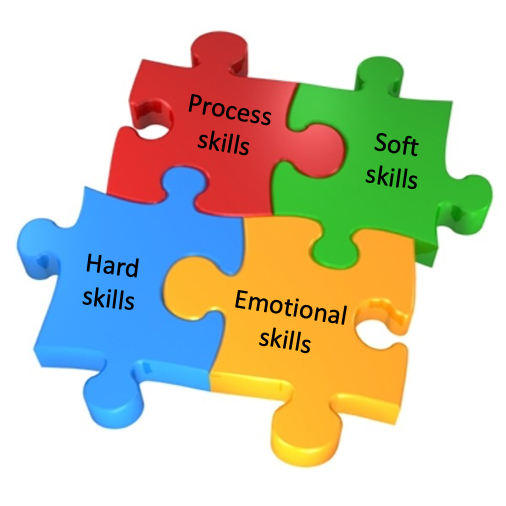Multiple-step research procedure on RE/RI expertise
The ENERI project aims to enhance cross-country knowledge exchanges within the fields of research ethics and research integrity by reinforcing existing network structures and establish new knowledge bases for various actors within the fields of research ethics and research integrity with the objective to share and promote information, training activities and capacity building (ENERI 2016). One of ENERIs central aims is to develop an e-Community for experts in research ethics and research integrity. One question that then arises is how to define expertise and expert competencies within the vast and heterogeneous fields of research ethics and research integrity? Moreover, when building a shared platform/database/e-Community for experts, which kind of indicators and criteria should be established for qualified expert membership?
The work package 6 in the ENERI project explored these questions through a comprehensive empirical program that wascreated to address the above mentioned issues in a systematic way, although with a particular focus on the construction of RE/RI relevant expert indicators.
- The first step of the program was directed at the completion of a literature review and desktop research with the objective to review, map and assess existing literature, reports and European projects concerning potential expert qualifications/indicators.
- This review was followed by a qualitative interview study with a number of various RE/RI experts.
- The next phase of the program constituted a quantitative survey that targeted a variety of actors, stakeholders, and organisations.
- The last part of the empirical program comprises a series of consensus conferences across four European cities with the aim to include potential database users and laypeople to discuss and validate existing findings on required expert qualifications and certifications for the EU level RE/RI expert database and e-Community.
Results – what is expertise in RE&RI?
Based on the expert interviews, there is a broad agreement among interviewed experts concerning the value in establishing a database, which is to adopt an inclusive, diverse and transparent approach to RE/RI expertise. Different types of experts highlight different types of experience and competences in accordance with their field of expertise and RE/RI representation. Hence, ethics assessment/review competences are emphasised for ethics research project reviewers, while knowledge of integrity guidelines and codes of conduct are mentioned as important competences for journal editors, for instance. Despite variation, similarities in core competences and skills appear somewhat consistent across different areas of expertise. Regarding competences, the following types of acquired knowledge are suggested:
- Ethical competences
- Integrity competences
- Research/science experience
- Legal competences
- Ethics assessment/review experience
- Integrity assessment/review experience

Experts furthermore agree on the importance of a number of skills related to communication, deliberation, collaboration, and management. These can be summarised and grouped according to hard skills (e.g. educational, technical, analytical), soft skills (e.g. communicative, interpersonal), process skills (e.g. administrative, management) and emotional skills (commitment, open-mindedness).
Based on the survey, respondents value ‘experience’ or praxis in RE/RI assessment the most; while they also would like to see database member experts possess some theoretical ethics/philosophy (and to a lesser extent ‘legal’) knowledge to back up their practical experiences.
When assessing required skills, respondents say that experts should be personally committed, open-minded and impartial people, with analytical minds to solve the ethical/moral dilemmas that may arise as problems. Simultaneously, they should also be able to convey and deliberate their potentially diverging opinions or points of view. Respondents suggest that the design of the database should (pre)define all skills and expertise of the database members, as well as years of practical experience, as somewhat more important than specific educational background. When it comes to specific skills and competences, respondents primarily value RE/RI experience as well as previous experience in RE/RI commissions, closely followed by scientific/research experience.
The consensus conferences primarily supported the view of the experts. Potential users and other key stakeholders come to the conclusion (with strong minority opinions in the case of Aarhus regarding Q1 and Q3) that:
- Q1: A broad, diverse and inclusive approach should be applied to RE/RI expertise;
- Q2: Individual profiles should be semi-structured; they are to include predefined key areas/themes of expertise to be filled in with short descriptions + open categories;
- Q3: The database should offer self-registration of experts;
- Q4: Members must not go through a training course before being allowed to register in the database, but such course(s) should be offered as optional;
- Q5: Individual profiles should not focus on quantifiable elements of experience (such as years of experience in ethics, or number of cases assessed or number of EAUs participated in) within particular areas of expertise (majority position only);
- Q6: The database should not require personal certification of any type to enter the database.
In alignment with the empirical-based findings on relevant RE/RI expertise as well as key database user needs, a set of indicators was constructed that specifies criteria related to:
- database structure and organisation;
- expertise affiliation, experience and skills;
- training requirements and options;
- certification prerequisites.
The full approach, results and final set of RE/RI indicators are documented in our deliverable reports:
D1.3 Report of midterm Consensus Conferences
